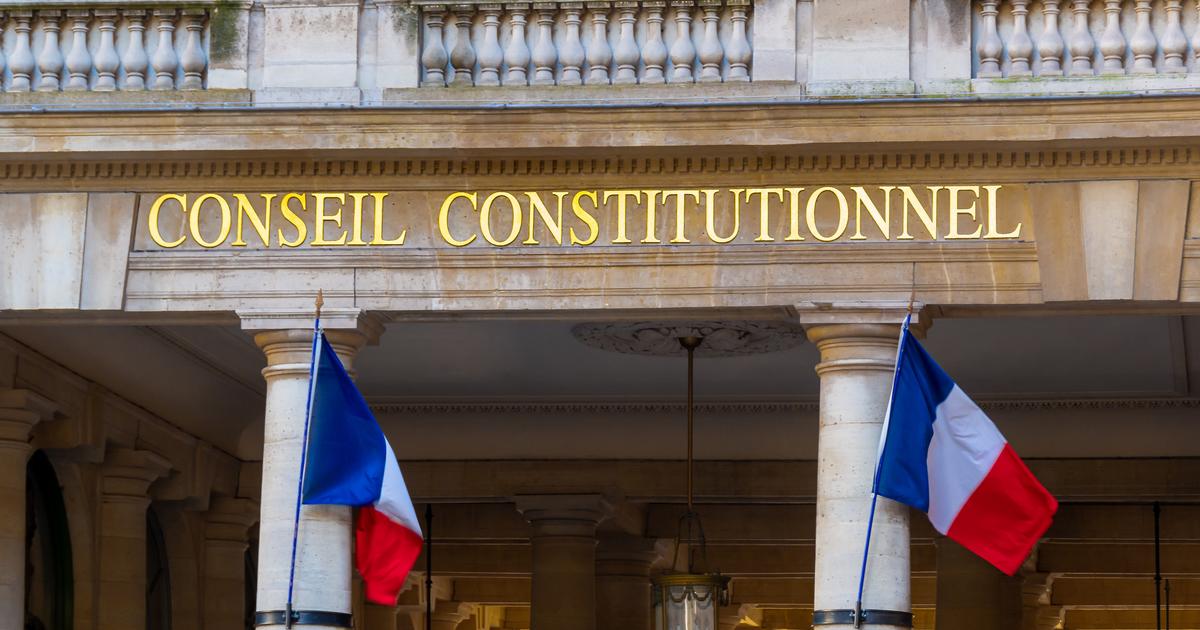"I had, you had, he had..."
.
Vanessa, a 23-year-old German girl, conscientiously recites her conjugation.
She is enrolled for three weeks at the
“France Langue Paris Notre-Dame”
school , which offers French lessons to foreigners.
This Thursday morning, March 10, in this small institute nestled in the heart of the Latin Quarter, a group of ten students are learning the imperfect.
Denis Marchais, their teacher, is one of those we would have liked to have had during our (terrible) foreign language lessons.
Fantastical and joyful, he questions his students in turn:
"Maria, have you already demonstrated?"
.
The question is clever: under the guise of conversation, it forces students to use the past tense.
Maria, a Mexican student, searches for words, hesitates.
His face lights up:
“yes, I did it against the violence and murdera...n...ations?”
.
“A-ssa-ssi-nats
,” the professor slowly resumes.
An asset in the world of work
Throughout this A1 course, the lowest level according to the CEFR (Common European Framework of Reference for Languages), the teacher alternates between question-and-answer games and vocabulary and conjugation points.
Different themes are covered: carrying a weapon, the legalization of cannabis, hunting... Each subject is conducive to students expressing themselves in French.
And exclusively in French.
Any use of English or their mother tongue is prohibited.
But what are these foreigners looking for when learning French?
Milena, 24, comes from a small town near Bern.
In this border country with France, the official languages are German and French.
She took a four-month break to come to Paris and perfect her learning in this course, which is part of Free Private Higher Education.
“French is a very elegant language.
I really like the accent, and the pretty expressions
,” she smiles.
She follows a B1 course, an intermediate level above A1.
Milena started learning French in middle school and moved to Paris so she could practice it daily.
“In Bern, knowing this language is a great help in finding work.
But it is difficult to learn, more so than English, which is close to German.”
“The French language is no more difficult to learn than any other”
Alberto Darjac*, his Franco-Italian teacher, kicks in:
“French is no more complicated to learn than any other language.
When I was teaching Italian, the same difficulties were encountered.
The key to success, and this is what my students constantly ask, is to forget their mother tongue, to wipe the slate clean.
We can then gradually enter the syntax and vocabulary.
To learn French effectively, you have to start from scratch.”
In his course, we talk happily about philosophy, and we discuss the problems caused by technology, in a very French spirit of debate:
“Technology creates a real addiction, we are addicted to our telephones”
.
Zoé, another young Swiss girl, uses a register surprisingly adapted to her generation.
“
I make them work on all registers
, specifies the professor.
Sustained and oral, but also young speech: slang, verlan, with words like “chanmé”, “teuf”, “keuf”.
They hear them in the street and are curious to know their meaning.
Once through the door, they have to be able to manage
.”
In this school, we study Duras rather than Molière.
Contemporary literature is preferred, at least for the low levels.
The teachers rely more on modern French, to facilitate understanding:
"that doesn't prevent us from showing them classical pieces, they understand more easily with gestures."
Each lesson is given in the morning for three hours.
And each time, the teacher addresses a grammar point and a list of new terms.
The method is centered on communication.
Foreigners discuss a theme, from which the different rules of French are studied.
“We use reverse pedagogy, they also have to work at home and do the homework we give them”
, explains Alberto, for whom the role of oral expression in class is essential.
Learn French for the love of the language
The French language continues to attract students to the
“France langue”
course each year .
Does this mean that she still shines?
“I think so, yes
,” replies Alberto.
If he fights so that his students do not use English among themselves during breaks, he maintains that
“French has an international reputation.
Just look at the profiles of foreigners who come here: there are students in political science, geopolitics or business, where fluency in French is recommended.
But there are also people who are there out of passion.”
Learning French attracts both retired people and others who work in a sector that does not require mastering it.
They are simply fascinated by French.
Like Simona**, an Italian-Spanish who lives between Milan and Tel-Aviv.
This 70-year-old retiree, who learned the language in her youth, put down her suitcases on the Ile de la Cité to resume lessons.
“I love it here, I don't want to leave.
French is a sophisticated language, which I really like to speak.
But how difficult is it!
(laughs).”
She is fluent in three languages (Hebrew, Italian and English) and considers French to be one of the most difficult to learn:
"the accent is very difficult to master, unlike Italian, which is a phonetic language.
But I still take these classes very seriously.
I plan to move up to the next level soon.”
“French gives access to culture and intellectual freedom”
Perpetuating this historical influence of French and its culture is the heart of the Cours France langue project.
Mathieu Rousseau, its director, testifies to this:
“We have the project of transforming this place into a cultural enterprise dedicated to the French language.
Let it not just be a place where language lessons are given.
When foreigners arrive here, we try to find out why they want to learn French, which is quite original.
We support them in their learning journey beyond the courses, so that they form a French-speaking network.”
The school is in the process of developing several projects, in particular cooking and fashion workshops, or visits to cultural places in Paris.
A writing workshop is being set up.
The idea is to take foreigners who already have a certain level of language to writing residences for a few days in the summer, in a pleasant place in France, in order to encourage them to write.
“Unlike English, the French language is not just a means of communication.
It gives access to culture, to intellectual freedom of opinion, to others, to innovation... This is what foreigners who learn it come to seek.”
Several workshops are scheduled for Monday, March 14, the third day of French Language and Francophonie Week.
Each of the schools of the France language school (there are some in several cities such as Bordeaux, Lyon, Nice or Martinique) organizes throughout the week activities related to the Francophonie: calligram exercises and writing news, an introduction to Japanese poetry, cooking, cinema or music workshops.
*Name and surname have been changed
**Name has been changed









